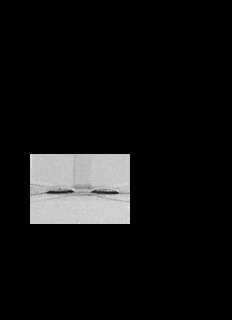
MILLIMETER-WAVE FIBER-OPTIC COMMUNICATION SYSTEM USING INP HEMTS Andrea Orzati PDF
Preview MILLIMETER-WAVE FIBER-OPTIC COMMUNICATION SYSTEM USING INP HEMTS Andrea Orzati
ETH Library Millimeter-wave fiber-optic communication system using InP HEMTs Doctoral Thesis Author(s): Orzati, Andrea Publication date: 2003 Permanent link: https://doi.org/10.3929/ethz-a-004619835 Rights / license: In Copyright - Non-Commercial Use Permitted This page was generated automatically upon download from the ETH Zurich Research Collection. For more information, please consult the Terms of use. MILLIMETER-WAVE FIBER-OPTIC COMMUNICATION SYSTEM USING INP HEMTS Andrea Orzati DISS. ETH No. 15102 DISS. ETH No. 15102 MILLIMETER-WAVE FIBER-OPTIC COMMUNICATION SYSTEM USING INP HEMTS A dissertation submitted to the SWISS FEDERAL INSTITUTE OF TECHNOLOGY ZURICH for the degree of Doctor of Technical Sciences presented by ANDREA ORZATI Laurea in Ing. Elettronica, Universit`a degli Studi di Cagliari Born July 11, 1973 in Cagliari (Sardinia, Italy) accepted on the recommendation of Prof. Dr. W. B¨achtold, examiner Prof. Dr. H. J¨ackel, Prof. M. Vanzi, coexaminers 2003 You see, wire telegraph is a kind of a very, very long cat. You pull his tail in New York and his head is meowing in Los Angeles. Do you understand this? And radio operates exactly the same way: you send signals here, they receive them there. The only difference is that there is no cat. A. Einstein Acknowledgments I would like to acknowledge all the people who, in different ways, supported me during my dissertation. In the first place, I would like to thank my “Doktorvater” Prof. Werner B¨achtold for giving me the opportunity to work in such a valid research group. I would also like to express my gratitude to Prof. Heinz J¨ackel and Prof. Massimo Vanzi who accepted to be my coexaminers. I would like to acknowledge Otte J. Homan for his (not only) scientific support, Hanspeter Meier for his patient and indis- pensableworkincircuitfabrication,andHansruediBenedickter for revealing me the fine art of high-frequency characterization. My gratitude goes also to Bruno Graf from Avalon Photonics for helping us in the dielectric layer deposition, to Iwan Schny- der, for bearing with me the “slings and arrows” of the project, and to Dominique Schreurs for sharing her great experience in device modeling. A special thank goes to all my friends and colleagues at the in- stitute, for the cheerful working atmosphere they managed to create. Thanks to Franck Robin for convincing me to wake up early to go skiing, climbing, or hiking, to Thomas Brauner for his patience with my poor sailing skills, to Esteban “Abuelo” Moreno for being always willing to try my latest brownies recipe, and to Federico Beffa for showing me a delicious al- ternative to the ETH Mensa. Un ringraziamento speciale va anche ai miei genitori, per il loro inesauribile sostegno, alla mia psicologa personale e a tutte le persone che mi sono state vicine in questi anni passati a “dissertare”. Contents Acknowledgments v Abstract xi Riassunto xiii 1 Introduction 1 1.1 Motivations 1 1.2 Project description 4 1.3 Outline of the work 4 2 The MFOCS System 7 2.1 System Design 7 2.1.1 Important Terminology 7 2.1.2 GuidelinesfortheDesignofmm-wave fiber-optic communication system 8 2.1.3 Different System Concepts 11 2.1.4 Proposed Approach 15 2.2 Hub Design 17 2.2.1 AnalysisoftheFiber-OpticDataLink 17 2.2.2 Analysis of the Radio Link 19 2.2.3 Hub Architecture 23 2.3 Conclusions 25 3 Process Technology 27 3.1 The High Electron Mobility Transistor 27 3.1.1 Fromthetwo-dimensionalelectrongas to InP HEMTs 27
Description: